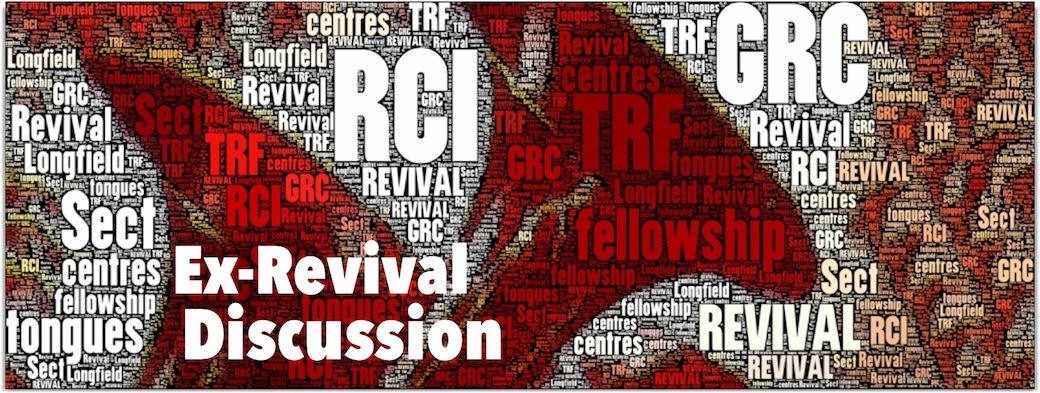
|
| Title: The Lost Tribes | |
| Revival_Centres_Discussion_Forums > Reviving from Revival > Recommended Reading | Go to subcategory: |
| Author | Content |
|
Didaktikon
|
|
|
Date Posted:17/08/2012 7:00 AMCopy HTML Hello, all.
Yesterday a book that I had been eagerly awaiting arrived, Melbourne Jewish scholar Ziva Shavitsky's, 'The Mystery of the Ten Lost Tribes: A Critical Survey of Historical and Archaeological Records Relating to the People of Israel in Exile in Syria, Mespotamia and Persia up to CA 300 BCE' (Cambridge, 2012). Revivalists who believe in fictional tales a la the 'British Israel' myth probably wouldn't be pleased with the tenor of the book; those who prefer facts-based history no doubt would be. Shavitzsky's book rather nicely complements the earlier work by Zvi Ben-Dor Benite, 'The Lost Tribes: A World History' (Oxford, 2009). Both works are informative and convincing; Benite's tome has the added advantage of judicious humor in certain places. However, either will disabuse a reasonably intelligent person of any lingering acceptance of one of Revivalism's most bizzarre doctrines. Blessings, Ian email: didaktikon@gmail.com
|
|
|
MrGrits
|
Share to:





 #1
#1
|
|
Re:The Lost Tribes Date Posted:18/08/2012 8:48 AMCopy HTML Ian,
All those books will provide is an opinion. Mr Grits |
|
|
Biblianut
|
Share to:





 #2
#2
|
|
Re:The Lost Tribes Date Posted:18/08/2012 9:53 AMCopy HTML <!--[if gte mso 9]>
Thanks Ian, I have read the introduction and a preview of the book (from ‘Amazon’ book site) and the author has backed up his research with the findings of Archaeology and drawn on the good works of the many others. Notwithstanding though, my idea it is better to find what Archaeology digs up first and then do the research of the material to establish the origin to whom it belongs. To me it is a bit like the Revivalists with their Pyramid nonsense when they claim, for e.g., the markings on the walls are various dates and prophesy about the bible written in stone etc. when Archaeology actually portrays it more to do with burial rights of Pharaohs and pagan traditions. However, I shouldn’t judge the book before reading as I’m sure my view will change after having read it in its completeness. Ralph. I believe in Christianity as I believe the sun has risen; not only because I see it, but because by it I see everything else. C.S.Lewis.
|
|
|
Didaktikon
|
Share to:





 #3
#3
|
|
Re:The Lost Tribes Date Posted:18/08/2012 11:04 AMCopy HTML Ralph,
First, what on earth are you talking about? Second, which book/author did you have in mind with respect to your somewhat trenchant comments? And third: Notwithstanding though, my idea it is better to find what Archaeology digs up first and then do the research of the material to establish the origin to whom it belongs. Seriously?! Were you suggesting that neither scholar followed just such an approach? On what basis have you seen fit to prejudge their scholarship, and then without the benefit of having first read either of their books? In closing, you missed the mark by a country mile in drawing an analogy from Shavitsky's and Benite's scholarship (both are professors in university history departments), to the decidely unhistorical Revivalist nonsense vis Pyramidology. Not your best effort, bro'. Blessings, Ian email: didaktikon@gmail.com
|
|
|
Didaktikon
|
Share to:





 #4
#4
|
|
Re:The Lost Tribes Date Posted:18/08/2012 11:08 AMCopy HTML Hello, Grits.
All those books will provide is an opinion. Indeed. But unlike yours, theirs are opinions informed by facts. Goose. Ian email: didaktikon@gmail.com
|
|
|
Biblianut
|
Share to:





 #5
#5
|
|
Re:The Lost Tribes Date Posted:19/08/2012 1:01 AMCopy HTML Ian,
Your right and like I said also, I shouldn't prejudge the book having not yet read it. I make no further comment. The main point I was making is that I believe Archaeology isn't what it is all cracked up to be, especially when it comes to 'dating' certain Biblical events that don't correspond to what Archaeologists may claim according to some programs and what I've read over the years. Even some claim that events such as the Exodus, Sodom and Gomorrah, Jericho, didn't happen as there is no physical evidence that has been discovered. But at the same token, Archaeology has done great works in giving us the knowledge and aspiration to achieve a greater understanding of Biblical history through the way people lived, in Biblical times. Revivalists claim that there have been Archaeological discoveries of certain burial traditions, national emblems, coins, etc., along the way that confirm the migrations of the "lost Ten Tribes" into the British Isles, etc. I have never found anything that backs up these claims. On the contrary Archaeology proves it to be the contrary, Viz, the Pyramid mythology. Ralph. I believe in Christianity as I believe the sun has risen; not only because I see it, but because by it I see everything else. C.S.Lewis.
|
|
|
Didaktikon
|
Share to:





 #6
#6
|
|
Re:The Lost Tribes Date Posted:19/08/2012 3:37 AMCopy HTML Ralph,
Archaeology is both an art and a science. Physical artifacts require interpretation, and interpretation itself doesn't take place in a vacuum given that we're all influenced by a range of assumptions and presuppositions (whether religious or otherwise). Obviously secular archaeologists aren't automatically going to accept biblical claims simply because they appear in the Bible. And why should they? But archaeology as a discipline has proven capable of changing positions when provided with sufficient grounds to warrant doing so. Consider, it was an 'assured result' of recent archaeological scholarship that the biblical figures of Pontius Pilate and King David never existed: no artifacts = no historical basis = myth. That changed when the 'Pilate stone' was unearthed at Caesarea Maritima in 1961, and the Tel Dan Stele was discovered in 1993/94. Evidence eventually leads to acceptance. A good friend and colleague of mine earned his PhD as a consequence of several seasons spent doing archaeology at the Amorite fortress of Emar (the modern Tel Meskini-Qadime in Syria). Murray would be among the first to defend the position that 'digging stuff up' does improve our understanding of Scripture, whether directly (e.g. the discovery of things like the Tel Dan Stele), or indirectly (e.g our understanding of Classical Hebrew has been enhanced by the discovery of texts in Akkadian and Ugaritic from places such as Emar). However, it would be naive to always expect a direct correlation between Scripture and the results of archaeological excavations. Outcomes will inevitably be based on how the data is interpreted and understood. Blessings, Ian email: didaktikon@gmail.com
|
|
|
Biblianut
|
Share to:





 #7
#7
|
|
Re:The Lost Tribes Date Posted:26/09/2013 1:40 PMCopy HTML The lost tribes became a topic of conversation this week with a friend, who no longer attends Revival but will not let go of many of the teachings. One such comment was that Revivalists, in their BI doctrine, hold on to the promise to Abram that he would become a Great Nation' (Gen.12:2) and they cited ‘Great Britain’ as that nation today because it is the only nation that has the word 'Great' in its title. Not very convincing, really.
I believe in Christianity as I believe the sun has risen; not only because I see it, but because by it I see everything else. C.S.Lewis.
|











